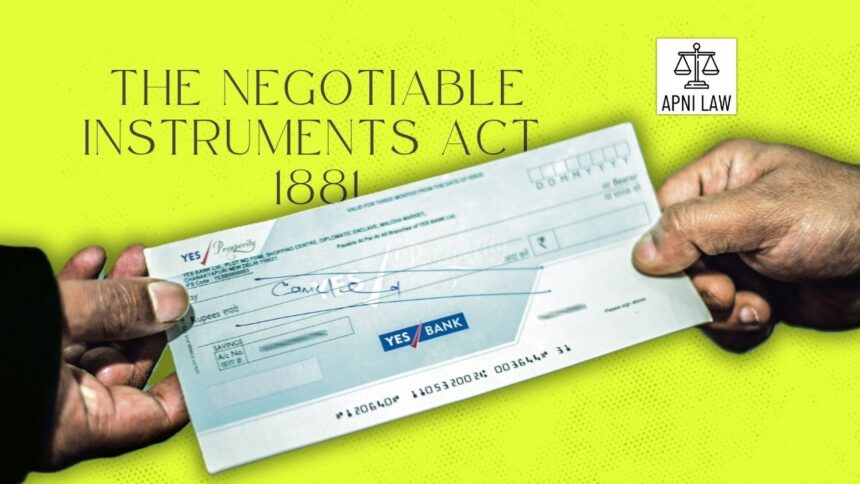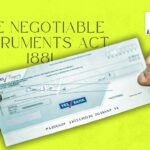Introduction
Cheque bounce cases in India are primarily governed by Section 138 of the Negotiable Instruments Act, 1881, which criminalizes the dishonour of cheques issued for repayment of legally enforceable debts or liabilities. However, not every cheque dishonour results in conviction. The law provides the accused with several valid defenses available in cheque bounce cases to contest the charges and avoid punishment. These defenses aim to create reasonable doubt about the existence of liability or the procedural validity of the complaint.
Cheque Issued as Security, Not for Debt
Courts have held that if a cheque was issued merely as security or collateral, and not in discharge of a legally enforceable debt, Section 138 does not apply. The liability under Section 138 arises only when the cheque discharges an actual liability at the time of issuance.
Absence of Legally Enforceable Debt
To prosecute under Section 138, the cheque must represent a subsisting legally enforceable debt or liability both at issuance and presentation. If the cheque was a gift, an advance payment, or covered a time‑barred debt, courts have held that Section 138 is not attracted.
Notably, in Indus Airways v. Magnum Aviation (2014) and Sampelly Satyanarayana Rao v. IREDA (2016), the Supreme Court ruled that cheques issued as advance payment do not reflect an existing debt, so dishonour doesn’t constitute a Section 138 offence.
Partial or Full Payment Made Before Presentation
If the drawer made partial (or full) payment after issuing the cheque but before its presentation, and did not endorse this payment on the cheque, then the cheque does not reflect the enforceable debt at time of dishonour. Thus, Section 138 cannot apply. Under Section 56, such payments must be recorded on the cheque itself; otherwise, liability fails.
Similarly, Dashrathbhai Trikambhai Patel v. Hitesh Mahendrabhai Patel (2022‑23) reiterated that an unendorsed part‑payment invalidates the cheque’s standing under Section 138.
Forged or Disputed Signature / Material Alteration
If the signature is in dispute, forged, mismatched, or the cheque has unauthorized changes in amount, date, or payee name, courts have upheld these as valid defenses. Such flaws invalidate the cheque’s legal effect under Section 138.
Cheque Obtained by Coercion, Fraud or Without Consent
Where the cheque was issued under fraud, misrepresentation, or undue influence, the accused may argue lack of consent or legitimate intention, which can negate the offence under Section 138.
Demand Notice & Filing Delays
Procedural compliance is mandatory:
- Legal notice must be served within 30 days of dishonour.
- The drawer must be given 15 days to pay.
- The complaint must be filed within 30 days of expiry of that 15‑day period.
Any lapse, defective notice (wrong address, improper service), delay in filing, or wrong jurisdiction (Section 138 case must be filed where the cheque was presented, not drawn), can render the complaint invalid.
Rebutting the Presumption under Section 139
The law presumes that a cheque was issued for the discharge of a debt. The accused must rebut this statutory presumption by presenting credible evidence suggesting absence or extinguishment of liability, e.g., agreement records, repayment receipts, proof of gift, or endorsement of part‑payment.
Practical Uses of “Partial Payment” Defense
Under Section 56, if not endorsed on the cheque, no offence, cheque overstates the actual debt. If the cheque reflects the correct remaining debt, this defense typically fails (§138 still stands). Not a defense to liability, may be used only to compound the offence or assist mitigation.
What Are The Practical Steps for Defense
- Analyze whether the cheque truly represented an enforceable debt at issuance and at time of dishonour.
- Check records for any partial/full payments made and whether they were endorsed.
- Review notice & filing timeline: Was the 30/15/30‑day sequence followed?
- Inspect the cheque for any signature mismatches or alterations.
- Gather documentary evidence: agreements, bank statements, receipts, correspondence that rebut presumption under Section 139.
- Respond legally within prescribed timelines, pointing out defects, and engaging forensic experts if needed.
Conclusion
These defenses, especially cheque issued as security, no enforceable debt, part‑payment not endorsed, and procedural defects, have been consistently upheld in Indian courts. The key is to assemble prompt, clear documentary proof to rebut Section 139’s presumption convincingly.








